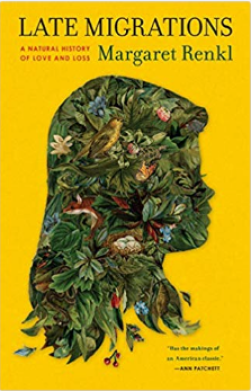Review | Margaret Renkl’s ‘Late Migrations’
History of Love, Loss, Natural World

As a grad student at UCLA in the 1980s, I was fortunate to room with the late poet David Case, who was originally from Alabama. David was brilliant, but he claimed he was nothing compared to a young woman from his home state named Margaret whose last name — as I heard it — was Wrinkle. I always assumed my roommate had been exaggerating, but three decades later, I realized the poignant weekly dispatches from Nashville I’d been reading in the New York Times were by the very same Margaret, whose surname turned out to be Renkl.
I relate this anecdote not just because people are so rarely as wonderful as their friends claim, but also because it points to a problem David was always trying, not quite successfully, to solve. How does someone who is deeply progressive wrestle with the legacy of being raised in the reddest of the red states? David immersed himself in the alternative universe of Los Angeles, but Margaret Renkl has taken a different tack, moving one state north to Tennessee but doubling down on her heritage.
Richly illustrated by her brother, Billy, Late Migrations: A Natural History of Love and Loss reprints 10 columns from the Times, though what stitches the book together are extremely short pieces — often just a page or two in length — that sometimes read like prose poems. Renkl has a Thoreauvian devotion to the natural world, especially as it manifests itself in her Nashville neighborhood. She writes frequently about birds, noting the joy they bring, but also “the grief of the failed nest” and the heartbreak of their “cycle of death.” Above all, she is obsessed by family; they are the reason she stays put. Reflecting on the loss of older generations, she writes: “They are an absence made palpably present, as though their most vivid traits … had formed a thin membrane between me and the world: because they are gone, I see everything differently.” The dominant tone of Late Migrations is elegiac, yet in writing about the deaths of her parents, grandparents, and in-laws, Renkl discovers that despite the inevitability of grief and suffering, there is “nothing at all to fear. Walk out into the springtime, and look: the birds welcome you with a chorus.”




You must be logged in to post a comment.